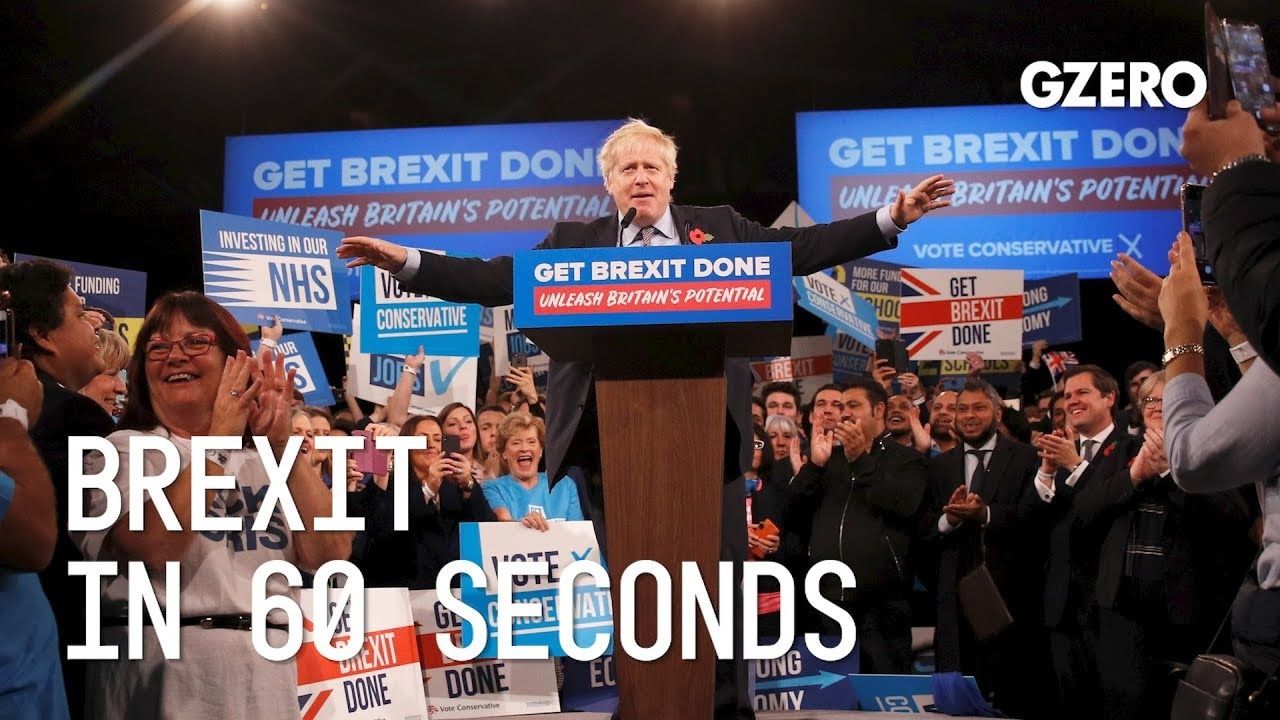In 60 Seconds
Apart from Brexit, what issues concern voters in the UK election?

Apart from Brexit, what issues concern voters in the UK election?

William Hague: Well, there are all the normal election issues, the health service, housing, law and order, employment, how to continue the amazing success of the UK in generating millions of jobs over the last decade. And of course, who people want and don't want as their Prime Minister.
David Miliband: What issues apart from Brexit are going to dominate the 2019 general election? Here's the paradox of the first few days of the campaign: The Tories say they want to fight on Brexit, but have managed to put center-stage, over the last two or three days, non-Brexit issues. Senior Cabinet minister made disgusting comments about the victims of the Grenfell Tower tragedy. The Prime Minister has managed to bury a report on Russian interference in the 2016 referendum. Have you heard of Russian interference before? And today, Wednesday, a cabinet minister, the Secretary of State for Wales, has had to resign because of his entanglement in an aide's intervention in a rape case in Wales. So non-Brexit issues have come forward. Now on the Labour side, they want to highlight issues of health, where they are traditionally strong. I should say "we are traditionally strong," since I'm a Labour voter for the shadow Brexit secretary Keir Starmer, in this election, in his constituency. They want to put issues of wealth and income inequality high on the agenda. They want to put issues of crime on the agenda because Labour knows that the Tories are weak on those issues. The striking thing, of course, is that in truth, issues of health, issues of inequality, issues of jobs can't be separated from Brexit because whether or not Britain Brexits is going to have an absolute fundamental impact on the social, economic and political trajectory of the country. So, it's not that it all comes back to Brexit, but that Brexit frames the choices that Britain will have going forward. One final point that I think is important: The prime minister's decision to negotiate the hardest of hard Brexits for Great Britain, with a carve out for Northern Ireland, which will have a soft Brexit, the prime minister's decision to negotiate a very hard Brexit for Great Britain sits directly at odds with his avowed commitment to try to spend more money, heal social division and appeal in a, quote unquote, "one nation way to Labour voters." And I think this is going to get found out in the course of the campaign. The Conservative Party is looking one way on Brexit, towards a hard Brexit, and another way on social and economic policy, towards a more egalitarian or united nation. I think that's going to get exposed in the campaign or it should be exposed in the campaign by a Labour campaign that's worth its salt.
In this episode of Tools and Weapons, Microsoft Vice Chair and President Brad Smith sits down with Ed Policy, President and CEO of the Green Bay Packers, to discuss how purpose-driven leadership and innovation are shaping the future of one of the world’s most iconic sports franchises. Ed shares how technology and community-focused initiatives, from Titletown Tech to health and safety innovations on the field, are transforming not just the game of football, but the economy and culture of Green Bay itself. He explains how combining strategic vision with investment in local startups is keeping talent in the Midwest and creating opportunities that extend far beyond Lambeau Field.
Subscribe and find new episodes monthly, wherever you listen to podcasts.
Egyptians are voting this month in parliamentary elections that aren’t expected to change who’s in charge, but could allow President Abdel Fattah el-Sisi to rule beyond 2030.
Thailand and Cambodia’s ceasefire is on the verge of collapse. Strikes were launched across their disputed border today, following clashes over the weekend that resulted in the death of a Thai soldier.